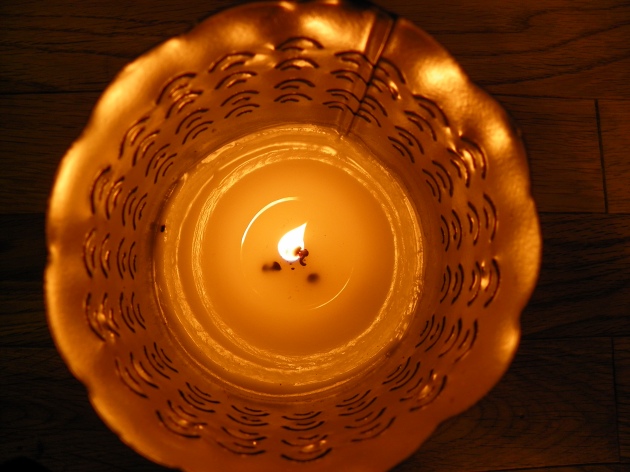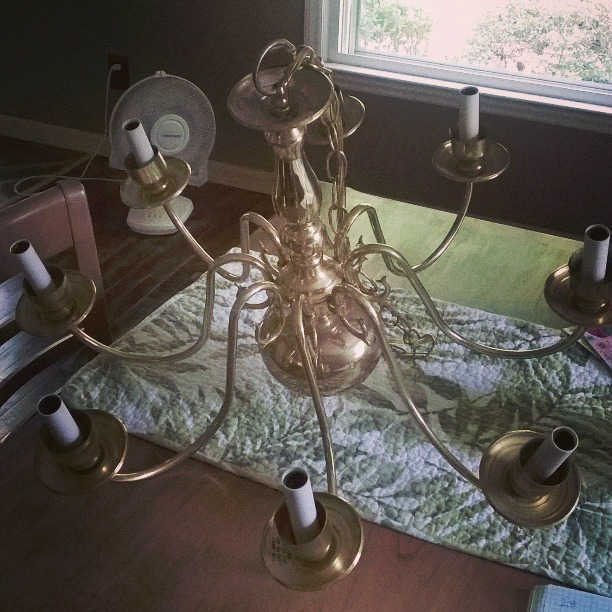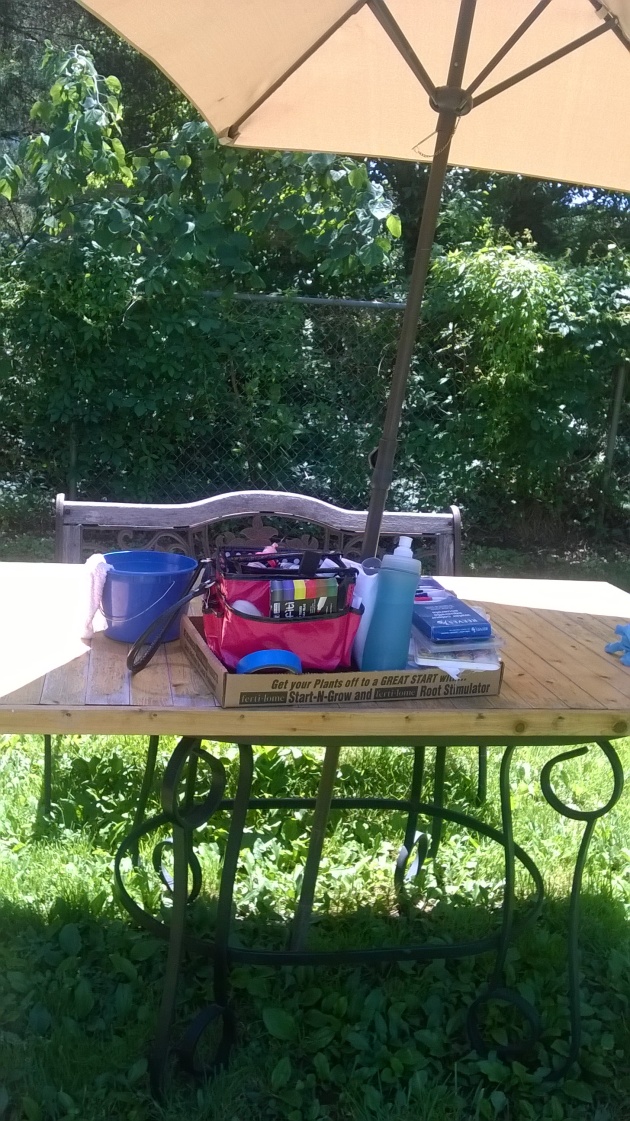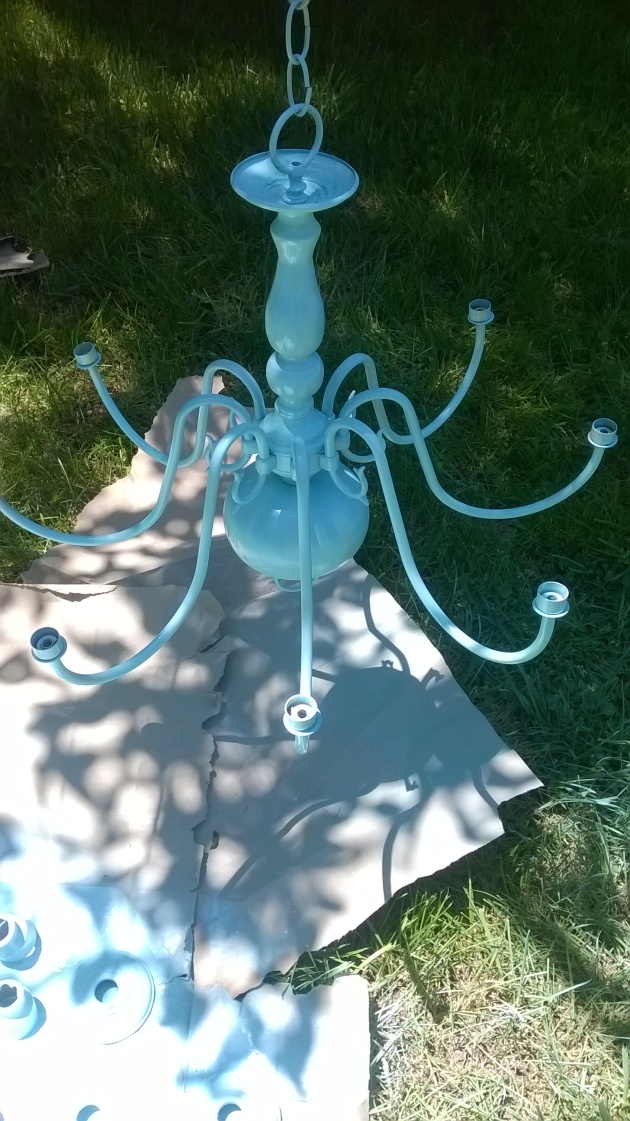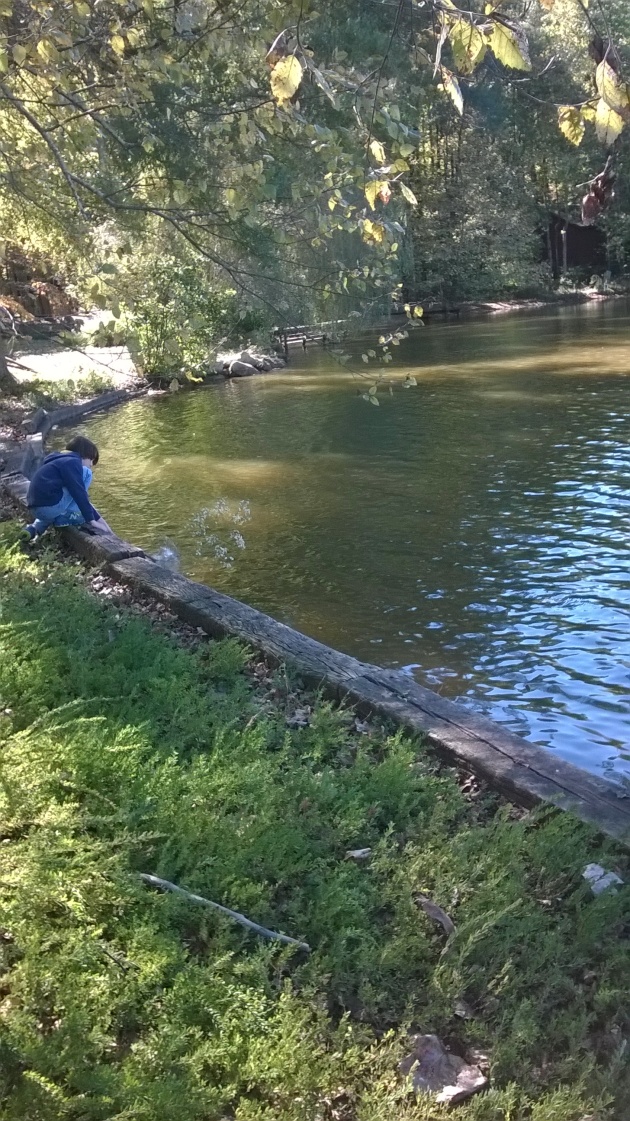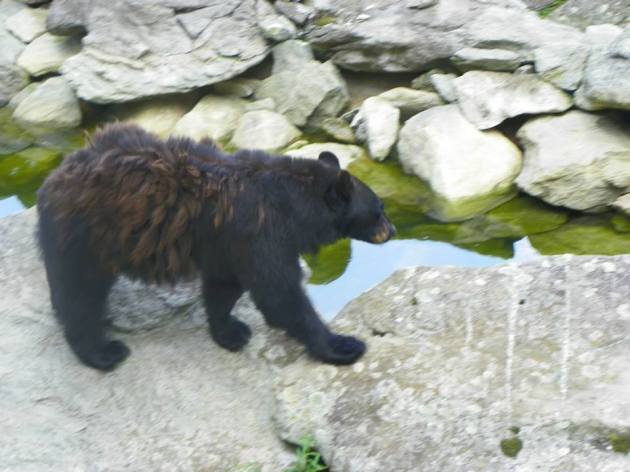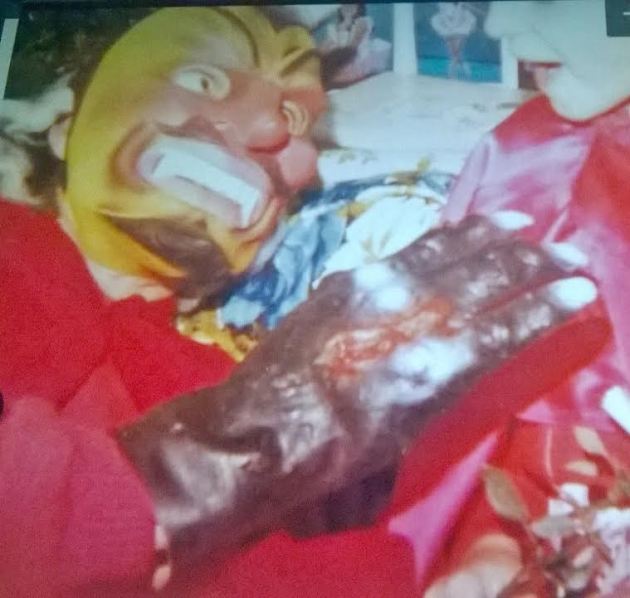
The metal bottle cap with pinched edge flies like an arrow released, making a line drive across the field of a fifth grade classroom. It misses the heads of students seated in neat rows, but finds a target, the brown-nosey girl in the last row, standing as she reads aloud.
The cap’s velocity is such that when it finds resistance, it digs into flesh, piercing her ear. The girl yells out her pain, turning her head like a raptor hunting prey. It becomes obvious that the boy with blue eyes, wide with surprise, his mouth forming a little pink “oh!” is responsible. Holding the blood-tinged cap in her hand, the girl points in his direction. He is the shortest student in the entire fifth grade. He compensates by earning the reputation of trouble making clown. His short legs seem in opposition to his deep, raspy smoker’s voice. She could have loved him out of pity, for her sense of compassion tended to fall on rejected people, animals, even inanimate objects like the Raggedy Ann doll who was found on the road, run over by some uncaring driver who obviously hated red-heads.
Bart Jackson wasn’t one of those who made her heart soften. Holding the cap, she felt the heat of embarrassment pulsing in her stung cheeks, as if freshly slapped on both sides. Shriveled-Up-Apple Head (the name the neighbor boys gave to her beloved Mrs. Stratton), asks the girl what happened. “Bart Jackson threw a bottle cap at me, and it hit my ear!”
Stratton’s mild response sends anger rising behind the embarrassment. The girl, now experiencing betrayal from her favorite teacher–wasn’t she supposed to be her friend? Or at least responsible enough to care about the safety of her students? What if that cap had taken out an eye?— stands, indignant.
The injustice of no consequences for Bart Jackson make the girl feel strangely cemented, like a statue that won’t budge. Class was not going to return to map reading or vocabulary or whatever unimportant page lay exposed on those 25 textbooks.
“Bart Jackson needs to go to the principal’s office for throwing the bottle cap at me.”
Seeing that Jenny wouldn’t sit down without some kind of action, the teacher motions the boy to go sit in the hall.
Go sit in the hall. Go sit in the hall? A reward! A nice little time-out for Bart, minus the coffee and donuts, or in Bart’s case, a smoke.
Jenny sits down, feeling empty handed. Like she’s lost something important and can’t get it back. A feeling of surprise appears inside this bag of freshly opened emotional garbage. Surprise that executive punishment will not be forthcoming. Her request, or in this case, demand, denied— by the harshest, most stern disciplinarian in the fifth grade. Not counting Mr. Jones who throws erasers and Mr. Mallory who probably just looks mean because of his dark eyebrows and black rimmed glasses. Could it be that Mrs. Stratton was not the hard, mean crone that everyone believed her to be? Did she have a soft spot for misbehaving, struggling boys as well as over-achieving girls? Or was this another case of “boys will be boys?”
Mrs. Stratton’s nickname didn’t just signify “old” but “mean.” She was known for being intolerant of horseplay, talking out of turn, sassiness or disrespect of any kind. As fifth grade teachers went, she had a reputation that passed down from generation to generation. Kids all over town groaned to see her name on the their room assignments at the end of summer. When Ted Weaver saw Jenny’s fifth grade assignment paper, he suddenly became sympathetic and consoling. Normally the neighborhood boys, besides her brother’s best friends, were antagonistic toward Jenny. Why? Who can say. She seemed average enough, but maybe kept her head a bit aloof. If only they knew that not participating in their kind of fun kept her out of trouble at home, maybe they’d be more understanding. Instead, they saw her as a tattle-tale and a bossy bore. Ted’s sudden kindness had the effect of making her afraid to start school in the fall, an event she normally anticipated like Christmas morning.
After a few days of moping around, Jenny’s dad demanded an explanation.
“I got Shriveled-Up-Apple-Head for a teacher!”
Jenny’s dad, not a lifetime resident of the town and having no knowledge of the reputation of local teachers, was not sympathetic. In fact, he was pleased to know that someone with a disciplinarian backbone would be a daily presence in his daughter’s life. But he also said, “Are you going to believe what people say about someone before you even meet them? Find out for yourself if the reputation is based in fact or myth. And never be so sure that a teacher with strength is automatically a “bad” teacher. You will learn the most from the hard ones, and if you keep your mind open, you may even discover a friend.”
Jenny wanted to believe her dad. But on the bus that first day of fifth grade, the imagery of a wizened, shrunken head perched on the shoulders of a wool cardigan wearing, ruler-wielding, wide heeled teacher stuck firmly in her mind. Suggest anything to Jenny, and her imagination fills in the blanks. She was doomed.
It turned out that Shriveled-Up-Apple-Head didn’t carry a ruler, but possessed a shiny metallic chalk holder that protected her smooth, powder-white sticks from breaking while she ribboned out long reams of perfectly looped cursive on the green board. Turning to face her students as she waited for hands to raise around the room, in these moments of waiting she had a habit of rolling the tube like a kindergartener rolling a snake of clay, up and down her fingers and palms. As the chalk holder passed her wedding band, it clicked pleasantly, like the turning of a gear while students contemplated (scrambled for) possible answers.
Her face was old, with plenty of wrinkles behind her cat’s eye frames. Her hair was obsidian, shiny black and wavy, keeping up with the 1920’s flapper fashion. If she was a flapper at one time, all the party in her must have been long spent and forgotten. She kept a small brass bell on her desk to ring when someone whispered or talked out of turn. She had placed an odd assortment of plastic buckets and bowls around the room to catch the drips from the leaky roof on rainy days. The sounds in the classroom were a mix of inhales and the frequent exasperated exhales of children at work, set to a backdrop of plip-plopping rain drops, the click-click of the metal chalk holder, and the tinkling of a brass bell. The room smelled like a wet, neglected basement, much like all the other rooms in the trailer that sheltered all of fifth grade. Jenny’s mom complained that she came home smelling musty.
But on ordinary days, Jenny loved the idea of being separate from the rest of the elementary school. It was kind of like being “off campus” on her way to bigger adventures in middle school. The day Bart Jackson threw the bottle-cap, she was inspired to grow up and stand up, the sense of injustice growing like the Grinch’s heart when he realizes that generosity feels wonderful.
But in the place of generosity, her heart grew bolder with resistance, beating harder with an urgent need to have someone, anyone, be on her side. A witness, maybe? Someone to agree that this was wrong. At least someone to ask, “are you ok? That looked like it hurt.” But in this unexpected moment of standing up for herself, Jenny learned that sometimes the ones who stand up for justice are often targeted for takedown. The reality of constantly trying to be rewarded for good meant that a persona was created; a perception that Jenny was, in her neighborhood and in the bigger world of school, a goody-two-shoes, know-it-all-brown-noser. There is a hollow downside to being a perfectionist in training. The silence of the class and the lack of response from her teacher made Jenny feel like she was making a big deal about nothing, like whining over a hornet sting, or a scraped knee. Nothing to cry about. Everyone back to work.
Maybe the problem was in the wording of her objection. “Bart threw a bottle cap at me and it hit my ear” didn’t accurately describe the way this object shot across the room like a harpoon, turning the sharp-edged metallic disc into flesh piercing shrapnel. How did he do that? She wondered. A sling shot? Years of practice at a target? Was her yearbook picture pasted to a red bull’s eye in Bart’s back yard?
Jenny did not readily accept his mumbled “sorry.” Too huffed up on righteous fumes, she believed his words were insincere. She didn’t care that his clothes were rarely washed and his hair, perpetually oily, lay flattened in a straight line across his forehead. She didn’t see that maybe in her privilege, she deserved to feel a little sting, to be taken down a peg. Maybe this was social justice after all, the impoverished piercing the righteous, comfy middle, even for a second. Did she deserve this? Did she feel better than Bart? Morally and socially superior? Academically superior? What if she had sent the bottle cap flying? Would she be sent to the principal’s office? Once, in kindergarten, she was sent to the office for wearing shorts. On a hot day. Maybe this air of superiority that she carried was the only defense against the degrading episodes of being picked on. Was she really just a hurt and angry girl who was repeatedly told that if a boy picks on you, it just means he wants your attention? That it’s normal and acceptable for boys to play pranks on girls because they like you. This explanation silenced her. She doesn’t think to pose a counter argument: if this were a case of “boy hits boy with speeding bottle cap” the scenario would likely involve a playground fight, and everyone would accept the outcome. But now, in this moment, think of the possibilities! A boy likes you! It made her want to die.
She doesn’t imagine physical violence as a possible solution. Fighting a boy would lead to trouble, and this is what she wanted to avoid at all costs. But accept his mumbled apology? This time, she refused to fulfill expectations with forgiveness. She refused to be submissive to make everything seem okay, a habit she would learn how to do later with boys and young men– in order to be acceptable, to win affection, in order to stay married.
Maybe it was a case of classic jealousy that hardened her heart. Jenny never got away with anything. Even that time when she accidentally whipped the neighbor boy on the neck with a freshly picked willow switch. When this neighbor kid told her dad what happened, the same green switch was applied to the bare flesh of her exposed bottom. And though she should have by now been accustomed to the sting, like that whizzing bottle-cap to the ear, shame and anger stacked up in piles like a thunderhead on a humid summer day.
The whipped neck incident was an accident. Jenny had been enjoying the sound of the wind resistance that it made while she handled the weapon, flicking it up and down with her quick wrist. She had been following the boys at a distance, but suddenly they stopped, and the whip found a mark. A very red mark on the back of a tender neck. Was Jenny subconsciously acting out some dark desire to control? Freud would say something along those lines. Was she a first-born wanting to be the boss? A sinister dominatrix in the making? Or was she a kid just enjoying the pleasing sound of a cracking whip? She loved things with texture: sounds, sights, foods. The clip-clop of horse hooves on cobblestone, the snap of the leather as the driver prods the horse. The crunch of acorns underfoot in the fall, the way shrimp seemed to burst on her teeth.
If you believe the latter, then maybe the bottle cap incident was an unintended miracle, a once in a lifetime event, like a buzzer beater shot from half-court to win the game. Was the assailant simply enjoying the practice of his new skill as a bottle cap skeet shooter? Maybe Jenny stood up a fraction of a second after the release, and it was just her misfortune to be in the wrong place at the right time, but also her good fortune not to have taken it in the eye.
Maybe it was because she had a history of being harshly reprimanded for small innocent mistakes and little lies told in order to remain in the good graces of authority. Maybe this explained why she felt bold enough to demand a harsher consequence for Bart. And who knows, maybe he did get some when he got home. Maybe a beautifully handwritten, instructional note was sent home to his mother. Maybe he took a harsher beating that involved some hard object. Maybe he had to give up his collection of bottle caps, the only “toys” he possessed.
And now, this girl, all grown up, thinks this would be a shame. Because in this world today, there are so many worse things happening to girls than ear piercings via sailing bottle caps. And Bart’s childhood was obviously not filled with good things. But there’s a funny thing about physical pain when it’s inflicted by someone else. The kind of pain that happens when a dog attacks or when you are punched in the face, having your glasses broken and your nose bloodied. Instead of laughing like a hyena as in the case of clumsy accidents, you rage like a lion.
At least, you do inside.
But here’s a curious thought: when an emotional stabbing takes place, we sometimes take those into our hearts, inviting them inside, making space for them to grow and sprout dark thoughts.
One day, while Jenny rode her blue bike with the white banana seat, a boy from another neighborhood rode past and said “you’re ugly!” And Jenny replied, “I know!” For a long, long time, she believed it.
This was the same boy who slobbered on a cherry flavored cough drop and threw it at the back of her head while riding the bus home. The red sticky gob stuck in her now curly brown hair (thanks, puberty!) so that she had to walk past all the kids on the bus with it dangling like an ornament on a sad Christmas tree, the syrupy gunk like a strange, bleeding jewel.
But then, soon after, by the grace of some benevolent spirit judge, Jenny received justice from the cough drop incident.
As an unfailing tradition, Jenny’s Dad dressed up like the devil every Halloween. He had a rubber mask that accentuated the whites of his big brown eyes, and a pair of horrid gloves with a bloody gash and long fingernails. He carried a pipe in his teeth with the face of the devil carved into the wood. He wore a flashy, red satin cape that whipped like a flame on a dark night. He wore red tights and a satin tail that he animated with a hidden wire.
When trick or treaters arrived, Dad the Devil played creepy sounds on Mom’s old organ, and slowly turned his head, eyes wide, toward the children. By today’s standards, this would be mild, but in the late seventies before pyrotechnics and digital recording, some kids got really freaked-out.
And late one Halloween night, the cough drop boy appeared at the door with his best friend. Dad did his scary best, including deep intimidating questions about what they were doing out so late.
Both boys, by now old enough to have outgrown costume traditions for the sake of seeming “cool” ran away, backwards and tripping, out into the darkness without their treats.
Dad had no idea what this meant to his daughter. To see cough drop boy afraid and scrambling. Not afraid because he was being bullied, but spooked by the drama of Halloween. Dad didn’t know how this event healed the buried, sheltered pain of body piercings by bottle caps, the sting and shame of misguided willow switches, the embarrassment of cough drop hair ornaments. The need for justice, from all these things, melted away. He doesn’t know, will never know, how his little bit of darkness, his pretending to be the Devil, gave me so much light.


